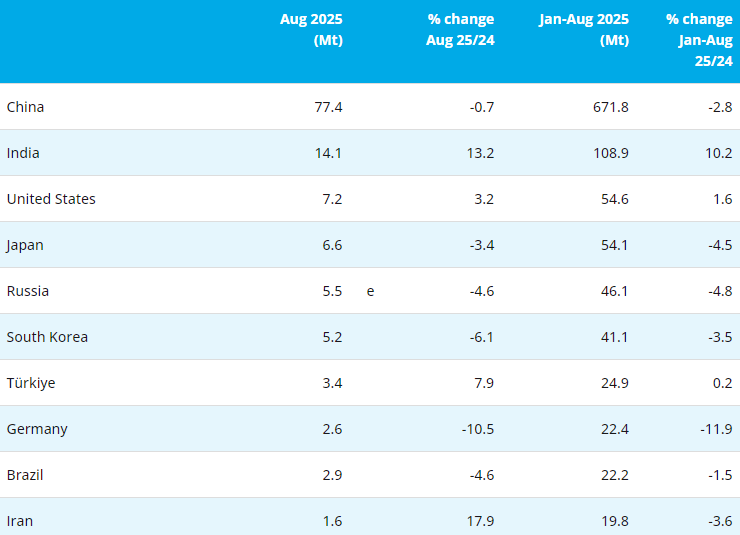【Ferro-alloys.com】Mitsubishi Heavy Industries Australia and Primetals Technologies, a member of Mitsubishi Heavy Industries Group, have joined Australia’s Heavy Industry Low-Carbon Transition Cooperative Research Centre as key partners. The Centre, a not-for-profit entity with significant government funding, aims to develop technologies to decarbonize Australia’s heavy industrial sector, leverage the country’s natural endowments in mineral and clean energy resources and seize the opportunity of growing export markets for certified low-carbon products. Over the next 10 years, Primetals Technologies and MHI Australia will be contributing financially as well as with their decades-long experience in iron and steel production to this effort. The companies will focus on research and development of hydrogen-based direct reduction of iron ore. This includes the novel HYFOR, hydrogen based fine ore reduction, technology currently being piloted by Primetals Technologies in Europe.
Primetals Technologies brings an extensive portfolio of iron ore beneficiation, pelletizing, sintering and iron ore reduction technologies to the table. It has been involved in the deployment of one third of the global fleet of MIDREX DRI plants, the now predominant natural gas based direct-reduction technology, which can be operated on 100% hydrogen. Earlier this year, Primetals Technologies commissioned a pilot plant for its novel HYFOR technology at a site of Austrian steelmaker voestalpine. The technology builds on the company’s extensive experience with the FINMET process, first introduced by Primetals Technologies in Australia (BHP Port Hedland) in the late 1990s. The next step, building an industrial-scale HYFOR prototype, will be decided by the end of the year.
Through MHI Group’s advanced technologies and strong collaborations with the Australian government and universities, MHI Australia is an active partner in Australia’s sustainable development efforts with a focus on energy and decarbonization. MHI is partnering with the Government of New South Wales to propose a comprehensive development plan for the Western Sydney region. MHI is also working with H2U to support the Front-End Engineering and Design study for H2U’s Eyre Peninsula Gateway project in South Australia, a greenfield development for the production of green hydrogen and ammonia planned to commercially operate from early 2023. It is anticipated that MHI Australia’s involvement with the HILT-CRC will expand and evolve over time further contributing to Australia’s industrial development.
This partnership will contribute to MHI Group’s aim to realize a carbon neutral future, one of the most critical challenges faced today, by helping to establish a robust hydrogen solutions ecosystem in Australia and around the world.
Australia has the world’s largest iron ore deposits and is the leading exporter of iron ore. Since the iron and steel sector is responsible for 7–10% of greenhouse gas emissions globally, Australia has a key role to play in the decarbonization of the industry, an effort which needs to be accelerated. Switching from traditional coal and coke-based ironmaking processes to hydrogen-based production methods is the only way for the industry to fully decarbonize. Deploying these technologies at scale in Australia could move producers up the value chain and turn the country into a major exporter of low-carbon, direct-reduced iron. This would help Australia meet its obligations under the Paris Agreement and make it easier for the global iron and steel industry to reach net-zero by 2050.
- [Editor:zhaozihao]



 Save
Save Print
Print Daily News
Daily News Research
Research Magazine
Magazine Company Database
Company Database Customized Database
Customized Database Conferences
Conferences Advertisement
Advertisement Trade
Trade
















Tell Us What You Think